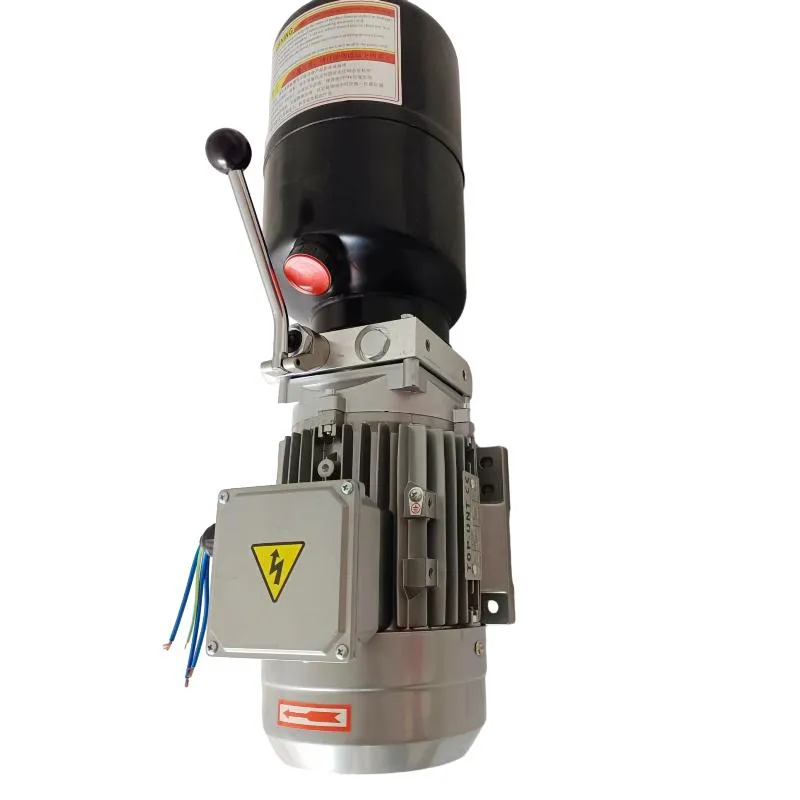Aug . 17, 2024 17:01 Back to list
Hydraulic Cylinder Products Featuring Innovative Water-Based Technology for Enhanced Performance and Efficiency
Understanding Water Hydraulic Cylinder Products
Water hydraulic systems have gained significant attention in various industrial applications, primarily due to their environmental benefits and operational efficiency. Among the most essential components of these systems are water hydraulic cylinders, which play a critical role in converting hydraulic energy into mechanical work. This article delves into the fundamental aspects of water hydraulic cylinder products, their benefits, applications, and the future of hydraulic technology.
What Are Water Hydraulic Cylinders?
Water hydraulic cylinders are mechanical devices that use water as the hydraulic fluid to generate motion. Unlike traditional hydraulic systems that use oil, water hydraulic systems leverage the incompressibility and high density of water to transmit power effectively. These cylinders operate under the principles of Pascal's law, where a change in pressure at one point in a confined fluid is transmitted equally throughout the fluid.
Benefits of Water Hydraulic Cylinders
1. Environmental Friendly One of the most significant advantages of water hydraulic cylinders is their minimal environmental impact. Water is a non-toxic and readily available fluid, reducing the risks associated with oil spills and pollution. This makes these systems preferable in environmentally sensitive areas.
2. Energy Efficiency Water hydraulic systems often exhibit higher energy efficiency due to lower viscosity compared to oil. This results in reduced energy losses during hydraulic operations, contributing to overall lower operational costs.
3. Temperature Stability Water hydraulic systems can maintain stable temperatures during operation, which is crucial for preventing equipment damage and extending the longevity of hydraulic components.
4. Cost-Effectiveness Water is more readily available and less expensive than traditional hydraulic fluids. This cost-effectiveness extends to maintenance, as water systems typically require less rigorous upkeep compared to their oil-based counterparts.
Applications of Water Hydraulic Cylinder Products
water hydraulic cylinder products

Water hydraulic cylinders find extensive applications across various industries, including
- Construction These cylinders are used in construction machinery, such as excavators and cranes, where they provide powerful lifting and digging capabilities without the environmental risks associated with hydraulic oils.
- Mining Water hydraulic systems are employed in mining operations, especially in areas where water is abundantly available, reducing the need for expensive oil-based fluids while ensuring efficient operation in harsh conditions.
- Marine Applications The marine industry utilizes water hydraulic cylinders in various applications, including underwater construction and maintenance, where the use of traditional hydraulic oils poses significant environmental risks.
- Agriculture Water hydraulic systems are also making their way into agricultural machinery, helping farmers manage equipment and irrigation systems sustainably.
Future of Water Hydraulic Technology
The future of water hydraulic technology looks promising as industries increasingly seek sustainable solutions. Ongoing research focuses on enhancing the performance and efficiency of water hydraulic systems, overcoming challenges such as corrosion and freezing. Innovations in materials and designs, such as corrosion-resistant alloys and smart hydraulic systems using IoT technology, are expected to enhance the reliability and functionality of water hydraulic products.
Moreover, as regulations regarding environmental safety become more stringent, the transition to water hydraulic systems may accelerate. Industries will be more willing to adopt these systems as they seek to reduce their carbon footprint and mitigate environmental impact.
Conclusion
Water hydraulic cylinder products represent a significant advancement in hydraulic technology, offering numerous benefits over traditional oil-based systems. Their environmental friendliness, cost-effectiveness, and efficient operation make them ideal for various applications across multiple industries. As research and innovation continue to evolve, water hydraulic technology is poised to play a crucial role in shaping a sustainable future for hydraulic systems worldwide.
-
Fork Lift Power Units - Hebei Shenghan | Efficiency, Reliability
NewsJul.13,2025
-
1.5-Ton Turbocharged Cylinder-Hebei Shenghan|Hydraulic Solution,Energy Efficiency
NewsJul.13,2025
-
Auto Hoist Power Units-Hebei Shenghan|Efficiency&Industrial Lifting
NewsJul.13,2025
-
Double Acting Power Units-Hebei Shenghan|Hydraulic Solutions,Industrial Efficiency
NewsJul.13,2025
-
1.5 Ton Lifting Cylinder 70/82-40-290-535 - High-Performance Hydraulic Solution | Hebei Shenghan
NewsJul.13,2025
-
Fork Lift Power Units - Hebei Shenghan | Efficiency&Reliability
NewsJul.13,2025
